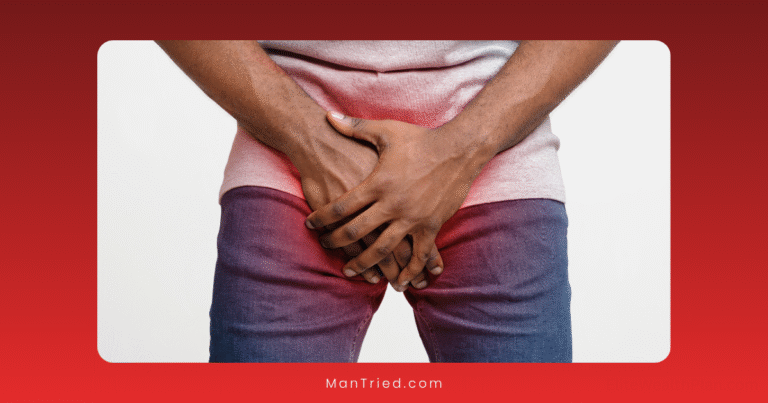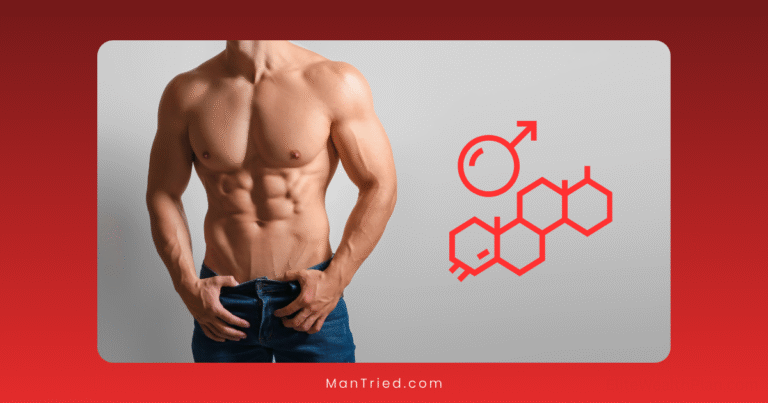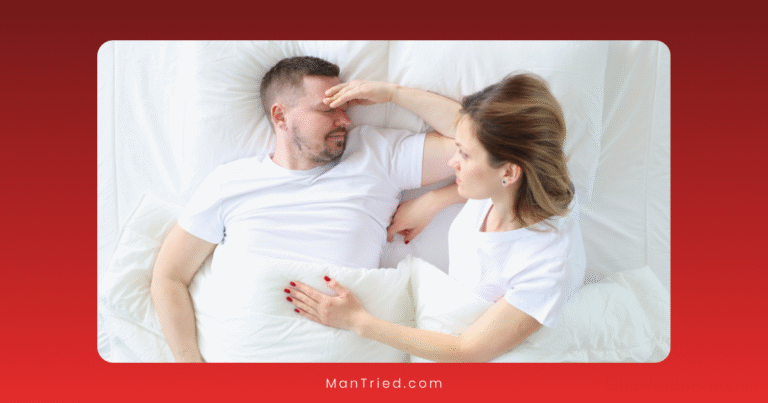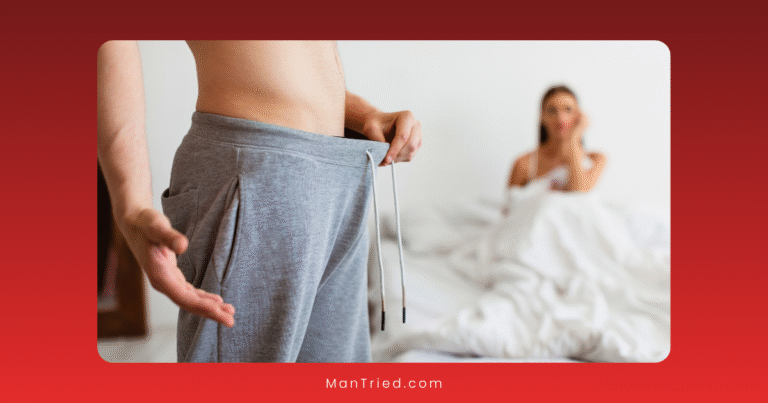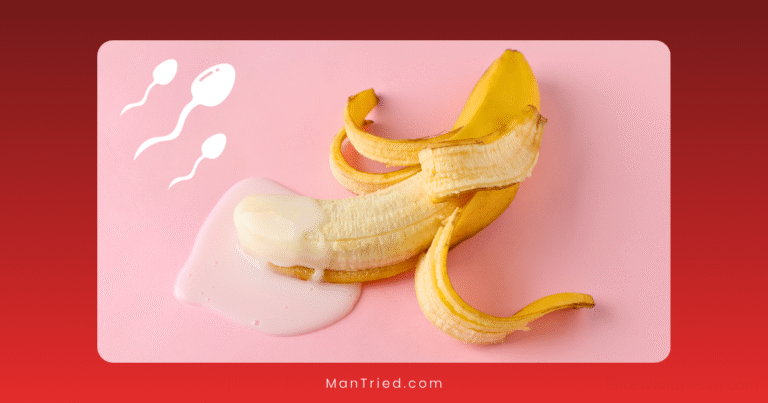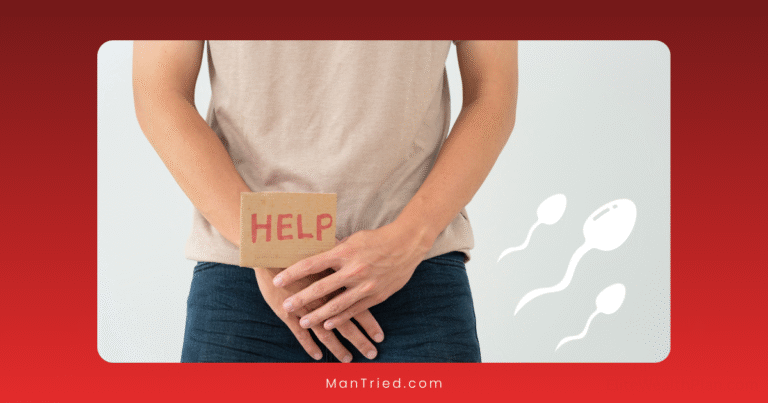The Testosterone-Libido Connection: What Men Need to Know
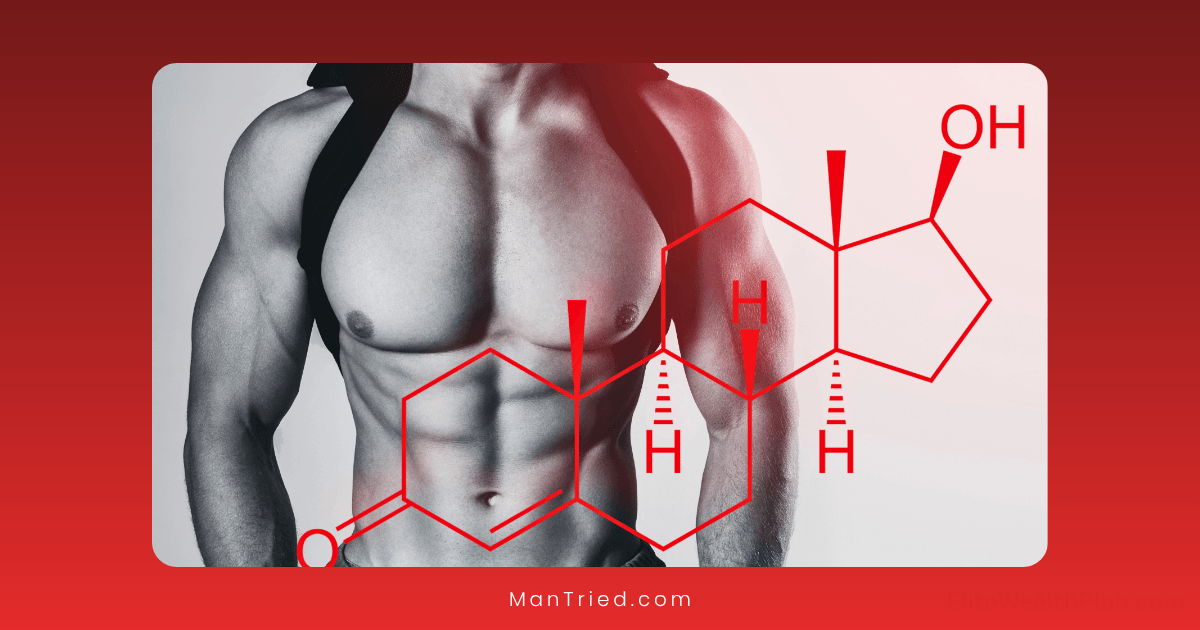
In recent years, there’s been increasing attention on the relationship between testosterone and male sexual desire. As testosterone levels in men continue to decline across populations—with studies showing significantly lower average levels than just a few decades ago—understanding this crucial hormone’s role in libido has never been more important.
This comprehensive guide explores the testosterone-libido connection, helping men understand how this vital hormone influences sexual desire, what happens when levels drop, and what evidence-based options exist for those experiencing issues.
Understanding Testosterone’s Role in Male Sexuality
The Foundation of Desire
Testosterone is often called the “male hormone,” though it’s present in both men and women (albeit in different amounts). In men, it’s primarily produced in the testicles and serves several critical functions:
- Driving sexual desire (libido)
- Supporting erectile function
- Contributing to sperm production
- Developing and maintaining masculine physical characteristics
- Building and preserving muscle mass
- Supporting bone density
- Influencing mood and cognitive function
According to Harvard Health, testosterone plays a fundamental role in regulating sex drive in men throughout their lives. While it’s not the only factor influencing libido, it creates the physiological foundation upon which sexual desire is built.
The Alarming Decline
Recent research has documented a concerning trend: testosterone levels in American men have been steadily declining for decades. A landmark study published in the Journal of Clinical Endocrinology & Metabolism confirmed a marked decline across age groups over the past 20 years, even when controlling for factors like obesity and smoking.
The Los Angeles Times reports that today’s average male has significantly lower testosterone than men of the same age in the 1980s. This population-wide decline may help explain why sexual health issues are becoming increasingly common.
How Testosterone Affects Libido
The relationship between testosterone and libido involves complex biological mechanisms:
Brain Chemistry
Testosterone influences key brain regions involved in sexual arousal and desire:
- It affects the amygdala, which processes emotional responses to sexual stimuli
- It modulates dopamine pathways associated with pleasure and reward
- It influences the hypothalamus, which regulates many aspects of sexual behavior
Dr. Michael Eisenberg, Director of Male Reproductive Medicine at Stanford, explains: “Testosterone essentially primes the brain’s reward system to respond to sexual cues and opportunities. When levels are optimal, this system works efficiently; when levels drop, the brain becomes less responsive to sexual stimuli.”
Physical Response
Beyond mental desire, testosterone directly affects physical sexual response:
- It supports nitric oxide production, crucial for erectile function
- It maintains sensitivity in genital tissues
- It contributes to the physical sensations of arousal and orgasm
- It influences ejaculatory function
Psychological Factors
Testosterone also affects psychological aspects of sexuality:
- It contributes to sexual confidence and assertiveness
- It influences sexual fantasy and mental arousal
- It plays a role in overall motivation and drive, which extends to sexual pursuits
- It can affect mood states that impact desire (depression, anxiety, etc.)
When Testosterone Levels Fall: The Impact on Libido
Natural Age-Related Decline
Unlike the sudden drop in hormones women experience during menopause, men typically experience a gradual decline in testosterone with age—often called “andropause” or “male menopause.” According to Houston Methodist:
- Testosterone levels decrease by approximately 1-2% annually after age 30
- Nearly 40% of men over 45 experience low testosterone
- Over half of men over 75 have clinically low levels
This gradual decline explains why many men notice a slow reduction in sexual desire as they age.
Symptoms Beyond Low Libido
While decreased sexual desire is often the most noticeable symptom, low testosterone typically presents with a constellation of issues:
- Reduced frequency of sexual thoughts and fantasies
- Decreased morning erections
- Difficulty achieving or maintaining erections
- Less pleasure during sexual activity
- Fatigue and low energy
- Decreased motivation and drive
- Mood changes, including irritability and depression
- Reduced muscle mass and increased body fat
- Cognitive changes, including brain fog and poor concentration
Dr. Rachel Carlton of the Marion Gluck Clinic notes that “many men attribute these symptoms simply to ‘getting older,’ when in fact they may be experiencing a treatable hormonal imbalance.”
Medical Definition of Low Testosterone
Clinically, low testosterone (hypogonadism) is defined as:
- Total testosterone below 300 nanograms per deciliter (ng/dL)
- Free testosterone (the biologically active form) below reference range
- Presence of clinical symptoms associated with low testosterone
However, it’s important to note that “optimal” levels vary between individuals. Some men experience symptoms at levels that technically fall within normal range, while others feel fine with relatively low levels.
Factors Contributing to Low Testosterone
Understanding what drives testosterone decline can help men take preventative steps:
Lifestyle Factors
Several modifiable factors significantly impact testosterone production:
- Obesity: Fat tissue converts testosterone to estrogen, creating a double negative effect
- Poor diet: Nutritional deficiencies and high-sugar diets negatively impact hormone production
- Sedentary lifestyle: Lack of exercise, particularly resistance training, reduces testosterone
- Sleep deprivation: Most testosterone is produced during deep sleep
- Chronic stress: Elevated cortisol (stress hormone) suppresses testosterone production
- Alcohol consumption: Regular or excessive drinking can lower testosterone levels
- Environmental factors: Exposure to certain chemicals and pollutants may disrupt hormone balance
Medical Conditions
Various health conditions can affect testosterone levels:
- Diabetes and insulin resistance
- Obesity and metabolic syndrome
- Thyroid disorders
- Pituitary gland dysfunction
- Testicular injury or infection
- Chronic liver or kidney disease
- Certain genetic conditions
- HIV/AIDS
Medications
Several medications can lower testosterone, including:
- Opioid pain medications
- Some antidepressants
- Certain blood pressure medications
- Chemotherapy drugs
- Some anti-anxiety medications
- Steroids (particularly glucocorticoids)
The Testosterone-Libido Connection: What the Research Shows
Recent studies have clarified the relationship between testosterone and sexual desire:
Threshold Effect
Research suggests testosterone has a “threshold effect” on libido—meaning that once levels reach a certain minimum, additional increases don’t necessarily enhance desire. This threshold varies between individuals but typically falls between 300-500 ng/dL.
A 2023 meta-analysis published in the Journal of Sexual Medicine found that men with testosterone levels below 300 ng/dL who received testosterone therapy experienced significant improvements in sexual desire, while those with levels above 500 ng/dL showed minimal additional benefit.
Beyond Just Numbers
The relationship between testosterone and libido isn’t simply about total hormone levels. Other factors matter:
- Free vs. bound testosterone: Only free testosterone (not bound to proteins in the blood) is biologically active
- Estrogen balance: The ratio of testosterone to estrogen can be as important as absolute testosterone levels
- Receptor sensitivity: Some men have more sensitive androgen receptors that respond better to available testosterone
- Other hormones: Thyroid hormones, cortisol, and prolactin all interact with testosterone to influence libido
Psychological Overlay
The testosterone-libido connection also has important psychological components:
- Low testosterone can contribute to depression, which further reduces libido
- Sexual confidence decreases with falling testosterone, creating performance anxiety
- Relationship issues often develop when libido decreases, compounding the problem
Natural Ways to Support Testosterone and Libido
Before considering medical interventions, several evidence-based approaches can help optimize testosterone naturally:
Lifestyle Modifications
Research published in the Journal of Endocrinology shows these lifestyle changes can significantly impact testosterone levels:
Exercise Strategy
- Resistance training: Lifting weights 2-3 times weekly increases testosterone production
- High-intensity interval training (HIIT): Short bursts of intense exercise followed by recovery periods boost testosterone more effectively than steady-state cardio
- Avoid overtraining: Excessive endurance exercise can actually lower testosterone
Dietary Approaches
The Marion Gluck Clinic recommends:
- Mediterranean diet pattern: Rich in fruits, vegetables, lean proteins, healthy fats, and whole grains
- Zinc-rich foods: Oysters, beef, pumpkin seeds, and crab all support testosterone production
- Vitamin D: Either through sun exposure or supplementation
- Healthy fats: Avocados, olive oil, nuts, and fatty fish provide the building blocks for hormone production
- Limit sugar and processed foods: These can disrupt hormonal balance and contribute to insulin resistance
Sleep Optimization
- Aim for 7-9 hours of quality sleep nightly
- Establish consistent sleep and wake times
- Create a cool, dark sleeping environment
- Limit screen time before bed
- Consider sleep tracking to identify issues
Stress Management
- Regular meditation or mindfulness practice
- Time in nature
- Hobbies and leisure activities
- Social connection
- Setting appropriate boundaries at work
Supplements With Evidence
While many supplements claim to boost testosterone, few have solid scientific backing. Those with the strongest evidence include:
- Vitamin D: Particularly effective in men with deficiency
- Zinc: Essential for testosterone production, especially if deficient
- Magnesium: Supports free testosterone levels
- Ashwagandha: Has shown modest testosterone-boosting effects in multiple studies
- Fenugreek: May help optimize the testosterone/estrogen balance
Medical Interventions for Low Testosterone
When lifestyle modifications aren’t enough, medical options may be appropriate:
Testosterone Replacement Therapy (TRT)
According to the New York Times, testosterone therapy prescriptions increased from 7.3 million to over 11 million between 2019 and 2024, reflecting growing awareness of testosterone’s importance.
TRT comes in several forms:
- Injections: Typically administered every 1-2 weeks, providing consistent levels
- Topical gels/creams: Applied daily, mimicking natural production patterns
- Patches: Worn on the skin and changed daily
- Pellets: Implanted under the skin, lasting 3-6 months
- Oral preparations: Less common due to potential liver effects
Benefits for Libido
Research shows that men with documented low testosterone who undergo TRT typically experience:
- Increased sexual thoughts and fantasies
- Enhanced response to sexual stimuli
- Improved erectile function
- Greater sexual satisfaction
- Improved mood and energy that indirectly enhance sexuality
A 2024 meta-analysis found that approximately 70% of men with low testosterone reported significant improvements in libido within 3-6 months of starting therapy.
Potential Risks and Considerations
TRT isn’t without potential downsides:
- Decreased fertility (often temporary but sometimes permanent)
- Elevated red blood cell count (polycythemia)
- Potential acne or oily skin
- Possible breast enlargement (gynecomastia)
- Sleep apnea may worsen in predisposed individuals
Importantly, in February 2025, the FDA removed the black box warning regarding cardiovascular risks associated with testosterone therapy, reflecting updated research showing TRT does not increase cardiovascular risk when appropriately prescribed and monitored.
Other Medical Approaches
For men who cannot or choose not to use TRT, alternatives include:
- Clomiphene citrate: Stimulates the body’s own testosterone production
- Human Chorionic Gonadotropin (hCG): Mimics luteinizing hormone to stimulate testosterone production
- Anastrozole: Blocks the conversion of testosterone to estrogen in men with elevated estrogen
- Selective Androgen Receptor Modulators (SARMs): Experimental compounds that stimulate testosterone receptors
When to Seek Help
Consider consulting a healthcare provider if you experience:
- Noticeable decrease in libido that affects quality of life
- Erectile difficulties alongside reduced desire
- Fatigue, mood changes, and decreased motivation accompanying low libido
- Other symptoms of low testosterone (weight gain, muscle loss, etc.)
Dr. Steven Lamm, Medical Director of the NYU Langone Preston Robert Tisch Center for Men’s Health, recommends: “Don’t wait until your symptoms become severe. Early intervention typically leads to better outcomes and may prevent the cascade of psychological and relationship issues that often develop when sexual problems are ignored.”
Finding the Right Provider
Not all healthcare providers are equally knowledgeable about testosterone and sexual health. Consider:
- Urologists specializing in men’s sexual health
- Endocrinologists with experience in male hormones
- Integrative or functional medicine practitioners with hormone expertise
- Men’s health clinics with board-certified physicians
Ask potential providers about their approach to diagnosis, treatment options beyond medication, and how they monitor treatment effectiveness and safety.
The Bottom Line
The connection between testosterone and libido is clear and significant. While declining testosterone levels are common with age, severe drops that impact quality of life are neither inevitable nor untreatable.
By understanding this crucial hormonal relationship, making appropriate lifestyle changes, and seeking qualified medical help when needed, men can maintain healthy sexual desire and function throughout their lives.
Remember that sexuality is multifaceted—while testosterone provides the biological foundation for libido, emotional connection, relationship satisfaction, and psychological well-being all play important roles in a fulfilling sex life.
Have you noticed changes in your libido? What approaches have you found helpful? Share your experiences in the comments below.

